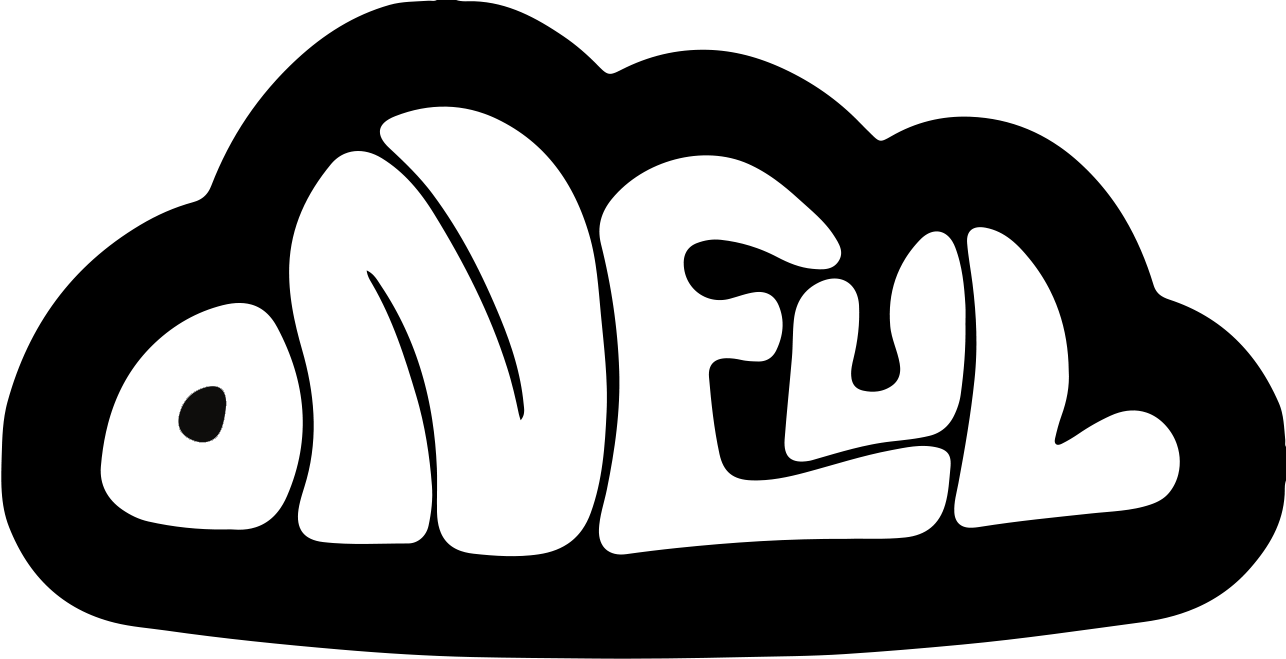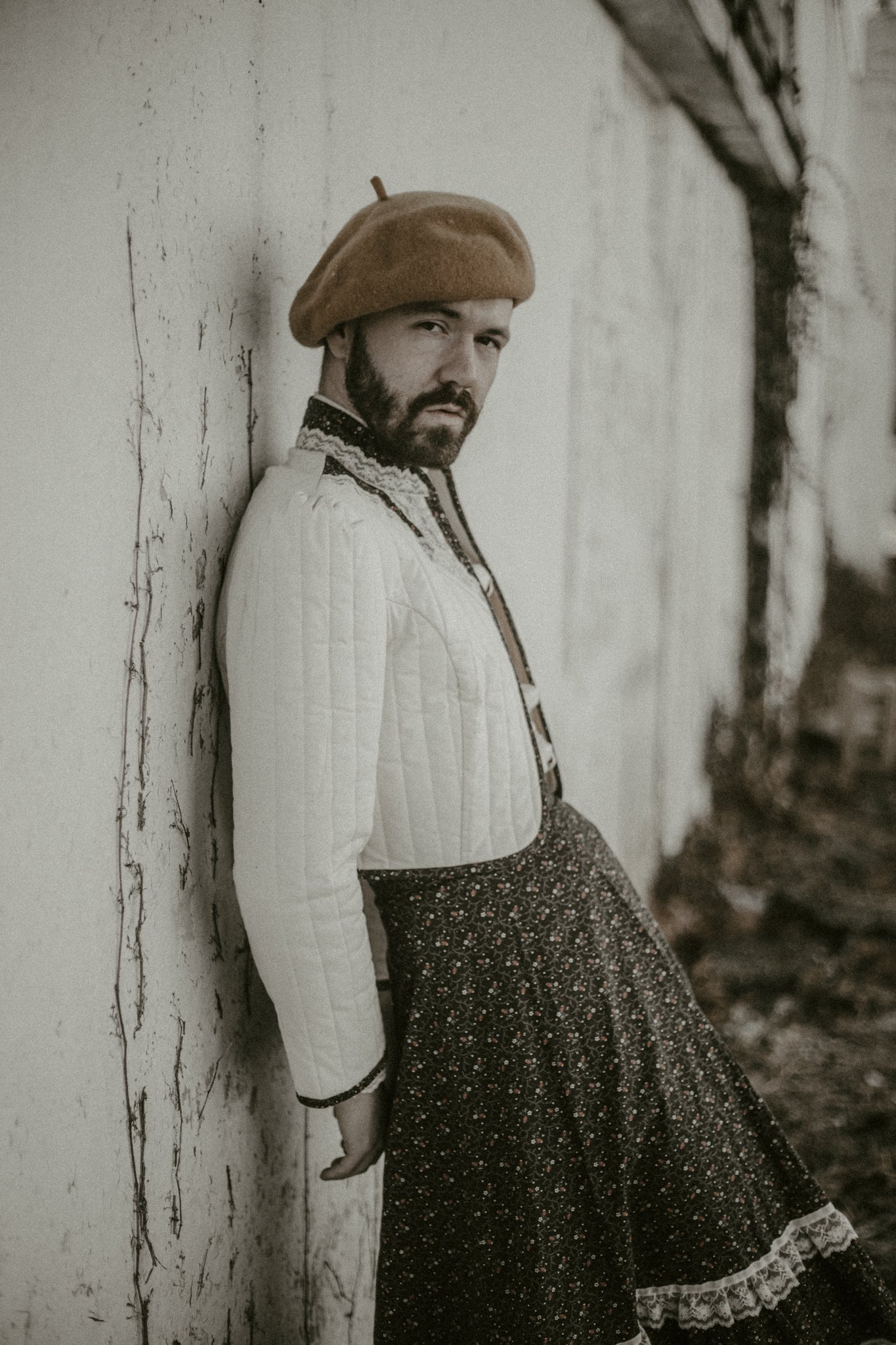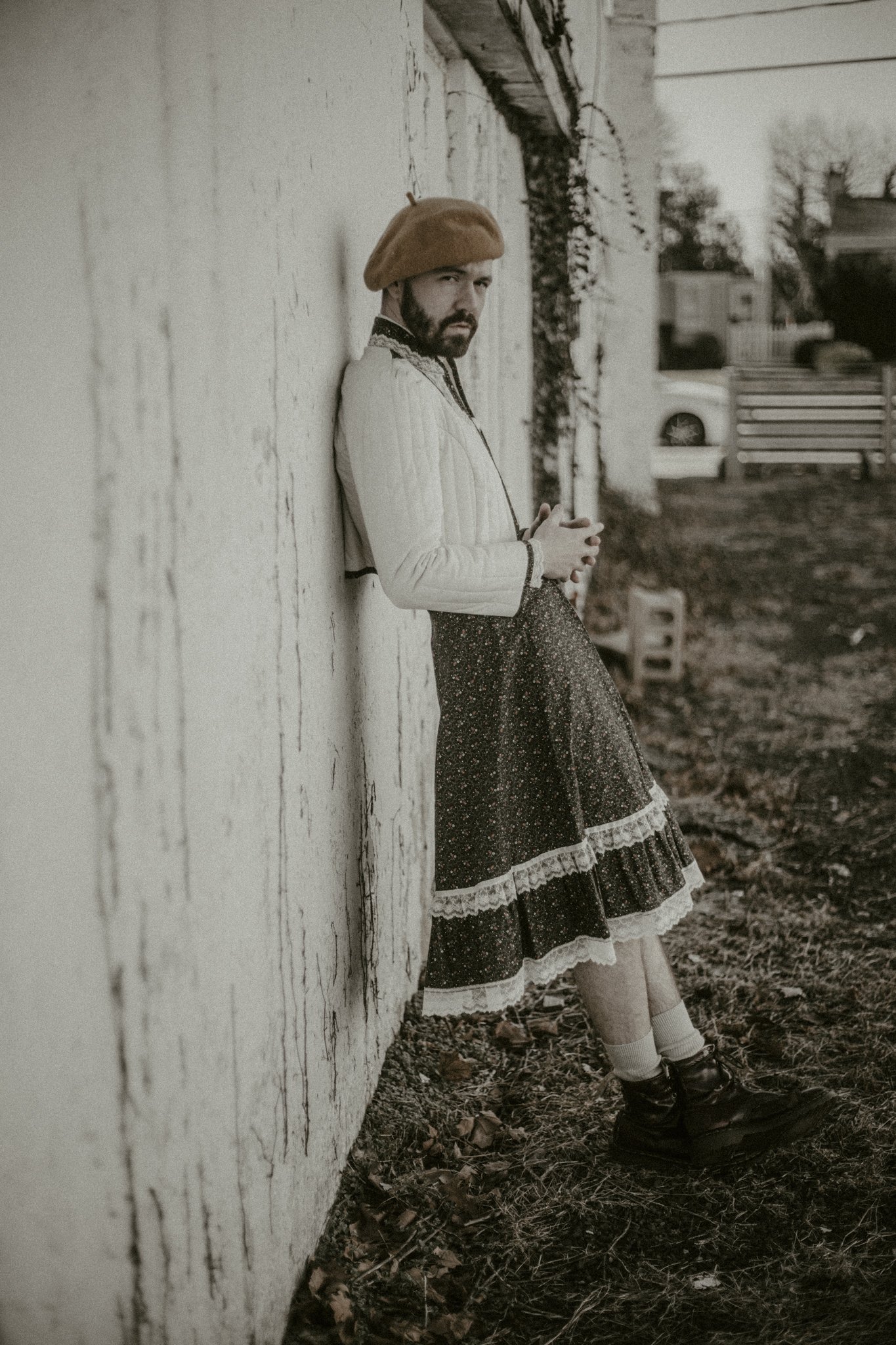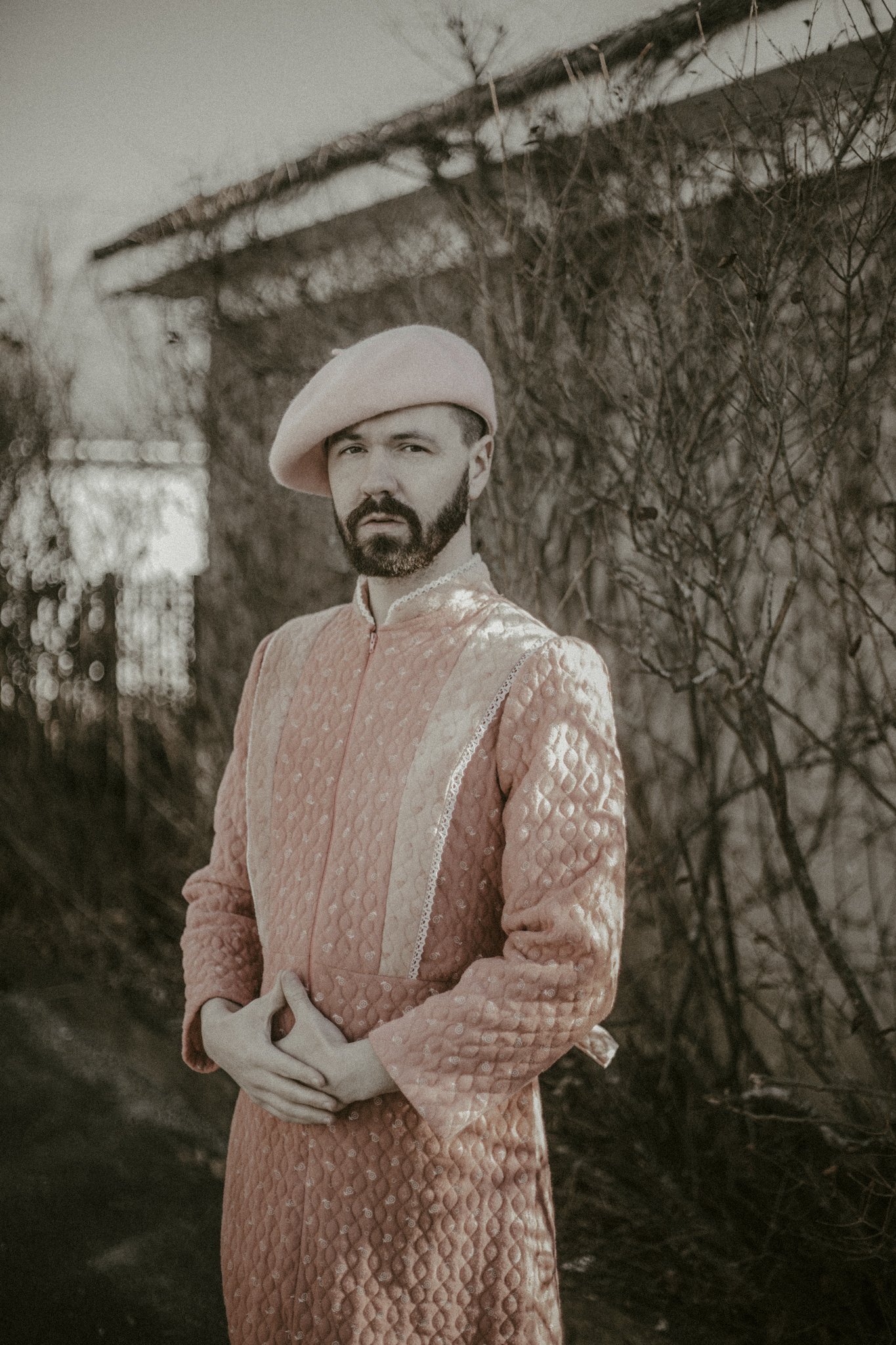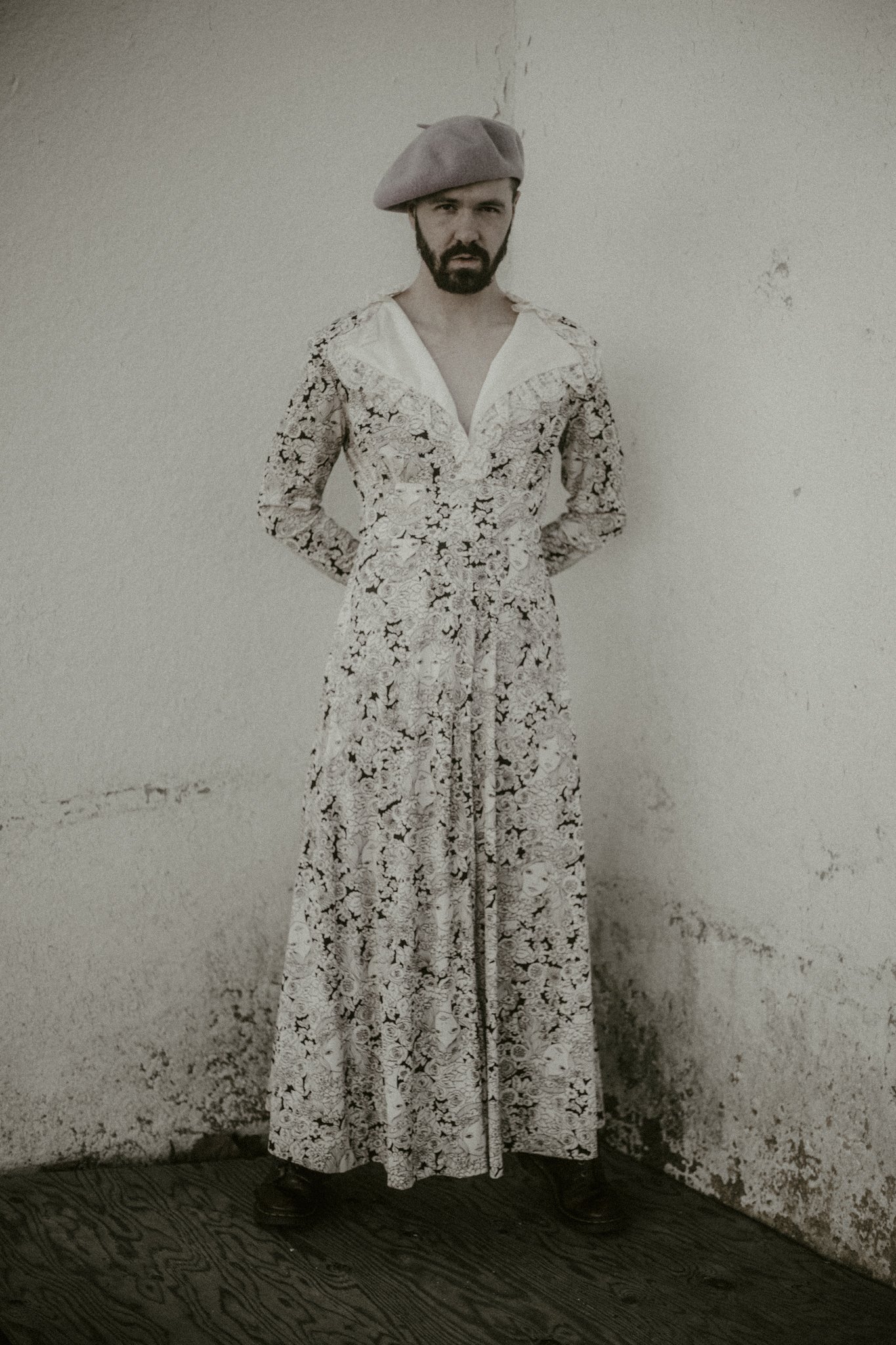Interview with David Ross Lawn
David Ross Lawn is a 29-year-old Scottish creative based in New Jersey, USA. David engages in various fields, spanning from producing classical contemporary music on the piano, to creating queer-themed content on social media in the realm of cottage-core and dark academia aesthetics. Their unique and individualistic sense of personality evidently persistent throughout their social media platforms have inspired several of their audiences to follow their heart and express themselves freely. Join us as we chat with him about his content, music, and story.
Could you tell us a little bit about yourself and what you do?
- My name is David Ross Lawn and I am a 29 year old gender fluid composer, performer, opera singer, pianist, and oboist, photographer, self-portrait artist and TikTok creator. I originally grew up in Scotland for the first 20 odd years of my life, and I was then awarded a really good scholarship to study at Princeton University in New Jersey. I came over originally for music and then I ended up deciding to stay around and work here mostly because it's a safer place for me. Over here I can be fully myself. With the pandemic right now, I work mostly on the internet, but I'm a freelance creative artist.
2. How exactly would you describe your style and aesthetic when it comes to your work?
- I would like to say that my “aesthetic” is purely a culmination of various inspiration points, some of them being quite strange. For example, when I first saw the Harry Potter movies, I was very inspired by Mrs. Weasley. Her style is how I’d like to dress for myself. I’m also inspired by many movies, fictional characters and other forms of visual art, especially with how they interpret various eras in time. If you fast forward to this year, I now have words for my kind of style. Cottagecore is one hashtag I fall under, along with Dark Academia.
3. In terms of your social media content, what exactly is it that you like most about the “subcategories” and “hashtags” you fall under?
- Although I do identify as a cottage-core gender-fluid creator, I didn’t know I was one. I’ve always worn floral dresses and berets, ever since I was 15 years old. I just love the bucolic nature of the cottagecore aesthetic, how everything is beautiful and accepted, which is just so comforting. I like to believe that it's all encompassing, although it’s quite a controversial take because some people think it's not. Personally, I have seen plenty of creators of all kinds do cottage-core blogging. I’ve even seen someone in a wheelchair do it and they did such a beautiful job of it and have such a good following. I really try to hype up those creators too, because I believe this should be an all inclusive space.
4. What is it that you aim to achieve through the content that you create?
- I think my mission statement with my content in general is that I want everyone to feel welcome and comforted. It's true, they look at my work and go “What’s going on here?”, but that’s just like an art piece on the wall. You speculate and try to find resonance with it. I would say, “the niche is being yourself”, cause when it comes to the context of creation and creativity, I think boxing yourself cuts off parts of yourself. For me, the niche is being myself and the best version of myself, while showing people these parts of me and not being afraid to be vulnerable.
5. What is it that drives and inspires you to create the kind of content you do today?
– There was this one day when I decided to just relinquish my Instagram posts, and so I archived my posts because I wanted to start afresh. I wanted my Instagram to look like an art gallery; like paintings on a wall. You’ll notice if you scroll down, I have this green, forest-like aesthetic, and I fell into that because I made the sweet decision to start creating more curated pieces. Rather than casual posting, like most people do nowadays and I love that for them, I would want to see something that makes people stop in their tracks and go “Woah! What is that?”. So I would say my inspirations are art galleries and museums.
6. Could you tell us a little bit more about the process behind some of your work for social media, especially with the pandemic that may have caused certain setbacks and limitations to your creativity?
– As of now, I do all my own self portraits. I don’t really feel the need to be photographed by other people, although I totally do and I love it. But in terms of what I post, I want to appear more individualistic, and the only way to achieve that is to do that for me is by doing it myself.
With COVID and lockdown where we couldn’t really do any physical photoshoots, I tried this new thing where I did photoshoots through facetime. So I basically use a vintage rug and any kind of lamp to prop my phone up, and start a facetime call with the person and style them. Then, we look around a couple of their rooms. For example, this girl from France, she’s a cottage core creator as well, and she was like “Why don’t we use this room, which has some paintings and plants as well?”. I then pose her or let her pose herself and it gets done in about 25 minutes or so. I use a preset to edit all these by myself, a dark academia FaceTime preset I have written. I don’t charge any money for it, I do it for the collaboration.
7. You are also quite established in the field of music. We would love to know more about your background and work in the industry.
– To start off, I have two degrees in music. My undergrad was in Scotland, at the University of Aberdeen, and it was in piano performance. For four years I did that, and then my Masters at Princeton, which I got almost a full scholarship for, and I still don’t know how I managed to do it. It was a masters in theory and composition, so the craft of learning how music is created classically, and my overarching project was mindfulness, meditation and music. I’m very fascinated by how music and timelessness as a concept exists. My passion is in music that takes people somewhere, music that finds the architecture for the human condition. I will sometimes sit in a coffee shop and write a piece of music looking at two people breaking up in front of me. And I did, it’s called ‘Conversation between Lovers’, and the conversation was absolute silence because they didn’t say anything. I’m very introverted on the piano. I like to watch what’s happening and stay fly on the wall. There’s a lot of classical training I’ve received, and being able to play these pieces, such as Chopin, Debussy, Bach, Beethoven, is really fun. But my passion as a creator is to take these moments and experiences from real life and turn them into music, whether it's my own or someone else's.
8. How would you yourself describe the kind of music that you create?
– When people listen to my music, especially adults in their 30s, the number one feedback I receive is that they go back to their childhood for some reason. So there’s a sense of whimsy that I’m also very locked onto. A lot of my music is inspired by childhood and landscapes, not necessarily positive nor negative. Sometimes it’s just a moment in time. I have a piece called ‘Flying, Floating, Falling’, where I thought of death for the first time. I remember asking my mom what happens when we die, and I still vividly remember her looking at me and being like, “I don’t have the answer to that for you”. It made me spiral into this beautiful, but also chaotic sense of nihilism of what’s really happening. So I have this piece of music that’s basically an archive of a moment in time, and it even got used by television once, in Scottish TV for a show called the “People’s History Show”. I’m very classically trained, but I’m not classical minded. I’d say I’m contemporary minded, where I want people to feel something so deeply, and I want my music to be accessed by all people.
9. Your new album “Nocturnes”, really invoked a sense of deep emotion that I can’t quite describe. It really felt as though there was a story behind it. Could you tell us more about how this album came to be?
– I wrote that one at the very beginning of the pandemic, one of those times I didn’t know how long I was going to be stuck inside. I’m really privileged and lucky to have a piano in my house, and so I started writing some music that came to me in the darkness. That’s why it’s called the “Nocturnes”, because in classical music, nocturnes means “pieces of the moon”, or “pieces of nightime”. Luna, the first piece, is a moonlight waltz. To me, it’s the moment that you can go outside again after waiting indoors. It’s a beautiful, positive one, like dancing. It’s liberating. Vigil is the second one, and it’s quite sad. Unfortunately, I’ve had a few people pass from COVID, which is so tragic, and my heart goes out to all those people that have lost their lives or loved ones to these circumstances. Vigil, to me, is someone on their knees at a church or any place, mourning, and asking why it all happened. It starts off gentle and then belts into this moment of release. It could be seen as reliving the memory of someone. The third piece is called “Valerian”. Valerian, biologically speaking, is a root that puts you to sleep. So to me, it was the idea of trying to fall asleep when your mind is racing. The last one is called “Onward”, and it’s a beautiful send-off to me. You can tell, I think of death a lot, and there’s this odd sense of beauty and peace in a weird way. And so the piece “Onward” for me is almost like the other side of vigil. It's the peaceful offering of death and moving onto somewhere else. So that's the Nocturnes collection. I wrote it all in a few days and recorded it in one day with my friend Connor. We did it all in one take, and then we just posted it.
10. You mentioned earlier that you do musical theater. Could you tell us more about your journey in the field?
- What I do that's really fun about theater nowadays is I take songs that are female oriented and sing them as a male presenting person. So whenever I do a recital, I will take, for example, a Stephen Sondheim song that was written for a female and I will sing it as a male voice type. People love it for me because it's a form of representation that we need in musical theater, as it's so stifled in terms of gender. It's also so stifling in the way that people look and I like to undo that every single time I perform, which is really fun. But if I were to talk about my musical theater background, I would say that musical theater definitely helped me find my identity. I did my first show when I was nine years old; Wizard of Oz. I was cast as the Munchkin Mayor, who I believe to be almost a gender fluid character. Bear in mind, I was nine years old in a very low budget area of Scotland and so our costumes were supposed to be made by ourselves. But the first time I put on the munchkin mirror costume, I felt like I had found a part of myself. I was torn off the binary, and from the Munchkin Mayor day onwards, I started exploring my gender fluidity without even knowing. I can attribute my gender fluidity towards theater and it helped me discover my identity sooner. I also think you learn a lot of other beautiful life lessons. Musical theater was actually a really big part of me finding parts of myself, family, and obviously parts of my musical journey.
11. What do you think is the most rewarding thing about being a part of this industry?
– This probably seems like a default answer and I'm sure every musician would say “Well, it's my destiny”, or something like that, but I just felt like this ever since I was nine years old, I live and breathe the piano. I always have and I have not stopped. So I would say what brings me out of it is the joy and the experience of playing the piano. This is what has always felt right. I get told things like, “Thank you for doing music”, “You've helped me through this”, “You've helped me connect with this”, (and) “You helped me talk to this person because of your storytelling”, on the daily. I feel like there is a need for me in the music world too. I don’t just do it for myself, but for the world hopefully. I have a couple of private piano students who were on TikTok and they told me I should post my outfits on there. My very first video went viral, which was really cool, and the caption was like, “I posted my outfit on TikTok because my students told me to”. From then on, I started doing really well, and this was just from sharing my outfits. The comments were thanking me for dressing this way. I think there's a need for me on TikTok and I don't know exactly why. But I've heard that people find me to be a comforting character, when all I do is wake up and say yes to being myself every day. I get messages everyday being like, “Thank you for being you”, and “You have helped me to be more myself”. It’s so motivating to get messages like these because people don't really have to do it.
12. What are some problems and setbacks you’ve had to face as a queer content creator?
– The blatant one that everyone sees are the hate comments, I’m very thick skinned though, and I even reply to some of them sometimes. I would say, ‘Use love as your weapon”. That’s one of my favorite David Ross Lawn quotes, because I don’t believe in taking down someone who wants to take me down. I don't want to fight people and make them feel worse, because usually they're insecure about something in themselves and they're projecting that disappointment onto me. I don't step outside my house for their validation. I don't need their approval. I looked in the mirror in the morning and said, “David, you look good today”. I think not everyone has that experience, which is why people are maybe a little bit more inspired by the content that I post, because I don't really care what people say. When they see a couple of comments that are nasty, everyone kind of likes to copy that nasty comment and one up it, which to me is very much like following the heritage of sheep. I don't understand it, but I guess that's how people work. So I just monetize the hate. Whenever I get a hate comment, I reply to it so that they come onto my page and that constitutes another view. I think us queer people should sometimes have a little bit of leniency on ourselves. We are such a malleable, strong force of people. We've obviously been through the ringer. Uh, and so all you can do sometimes is just laugh. I don't actually consider myself getting beaten up or bullied online because in my head space, I'm not allowing myself to be the victim in that situation. I've lived long enough to know that if they don't like it, they don't have to watch it.
13. Adding to what you said above, what are your views on queer representation in media today as a queer content creator?
– I think there's still a long way to go and I have a number of reasons that come instinctively to my mind. Whenever there is a movie with a queer character or queer moments, for instance, example Euphoria, or Queer Eye, it's like, “Oh my God, there's a gay character”. I think it's amazing that we have shows that have these representations, but it's still making the headlines that it is a queer movie or a queer driven movie. I would say we're about halfway there in terms of representation, which I'm definitely seeing in fashion. We’re also getting there in terms of gender-fluid lines of clothing, with bathrooms, things like that. But every place is different. In terms of media, I think we're getting there, but I don't think we're there yet because it still makes the headlines as something “different”. Until queerness is normalized, where it’s just the way it is, that’s when it will be making more of an impact, and I yearn for those days. I'm contributing to the normalization of male presenting people, wearing dresses, gender fluidity, and fashion, and in cottage-core being a queer and comforting space. I say sometimes that being yourself is a form of peaceful protest.
